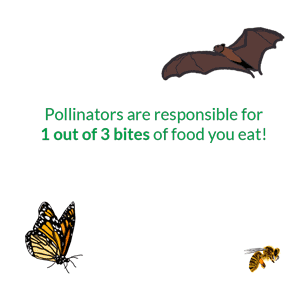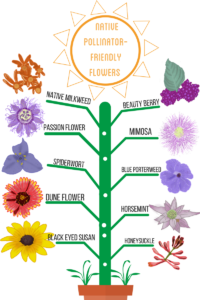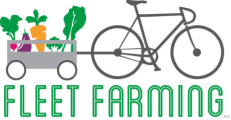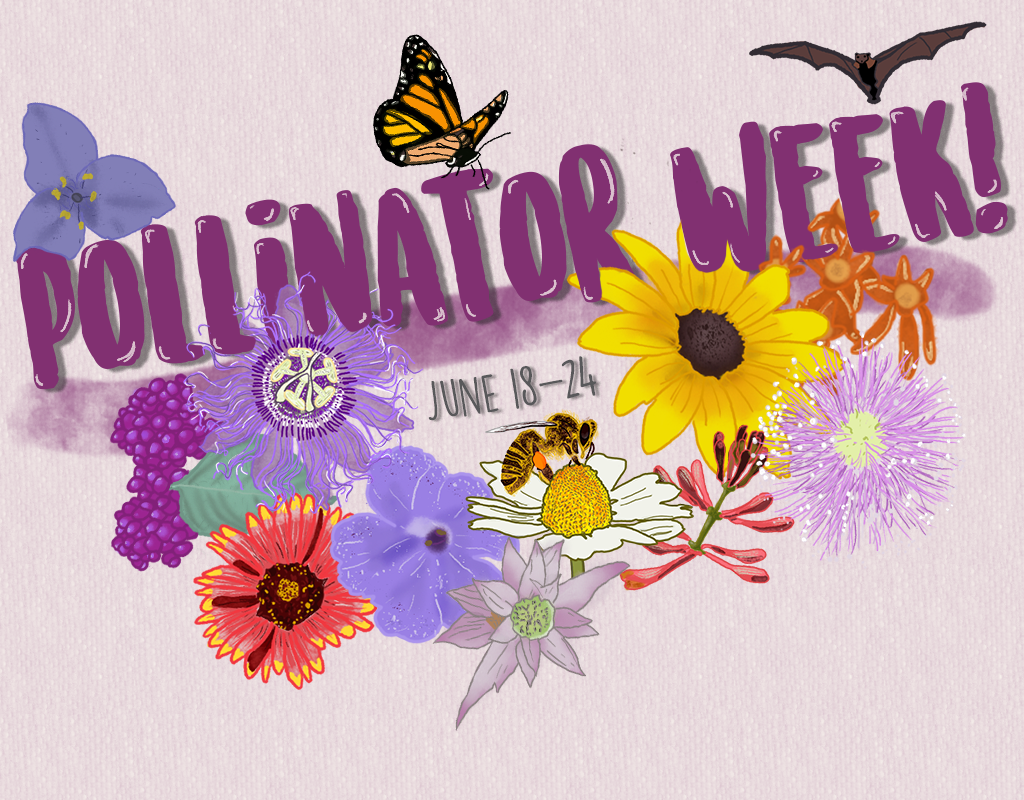Happy Pollinator Week friends! Why are pollinators so important that we dedicated an entire week to them? Well, pollination is a very important process that contributes to our ecosystem in many ways, and it would not be possible without the help of this amazing group of animals known as pollinators. This week we’ll focus on the three B’s: bees, butterflies, and bats. However, the list does not end there! Any animal that transfers pollen from plant to plant can be considered a pollinator. Some of these critters feed on the pollen and nectar found on flowers and plants, so as they visit each flower in search of nutrients, shelter, or mates, the pollinator’s body will often become covered in pollen grains that travel with them to the next flowers. If these pollen grains fall onto the flower’s stigma (female part), the flower may then become fertilized and reproduce! Plants must rely on vectors like the wind, water, and pollinators to help them reproduce since most of them cannot do so on their own.
 Did you know that pollinators are responsible for 1 out of every 3 bites of food you eat? That’s because the plants they are fertilizing are simultaneously producing the fruits, veggies, nuts, oils and other foods that we enjoy on a daily basis. Without pollinators, our economy would be at a huge loss as well. In the United States, pollination produces about $20 billion worth of crops and other products in just one year.
Did you know that pollinators are responsible for 1 out of every 3 bites of food you eat? That’s because the plants they are fertilizing are simultaneously producing the fruits, veggies, nuts, oils and other foods that we enjoy on a daily basis. Without pollinators, our economy would be at a huge loss as well. In the United States, pollination produces about $20 billion worth of crops and other products in just one year.
Pollinator populations have been declining over the years due to loss of habitat, misuse of chemicals, climate change, and disease. Next time you see a bird feeding on a flower, or a bee buzzing around a garden, take a moment to appreciate them for their services. However, don’t stop there! There are several ways you can help these beautiful, and often overlooked, creatures.

Plant your own pollinator garden with native, pesticide-free plants, visit your local farmers markets and buy locally grown, organic crops and honey, and get involved in local movements working towards economic sustainability. For example, The Monarch Initiative, presented by The Nature Conservancy, aims to educate Central Florida on the importance of pollinators, specifically the Monarch. Don’t underestimate yourself; simply spreading the word about why we need to help Mother Nature’s babies goes a long way, too! If you’d like to learn more about pollinators and what you can do to help them, go to www.pollinator.org.
Check out our favorite Central Florida nurseries that grow native pollinator-friendly plants!
South Seminole Farm and Nursery
Lukas Nursery & Butterfly Encounter
Sources: Pollinator.org, Agpollinators.org, Fws.gov

